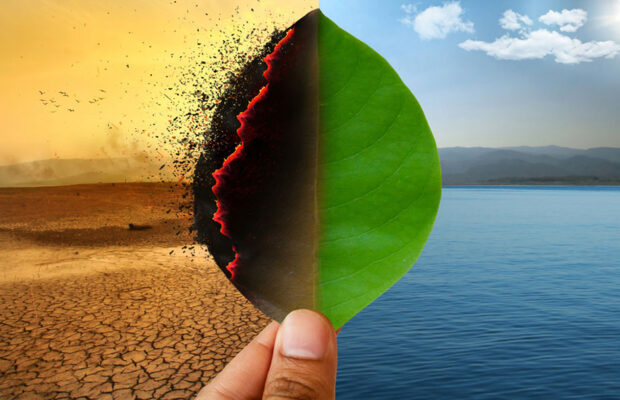Environmental science teacher addressing climate change challenges ahead

Though climate change is having a greater and greater impact with each day, AP Environmental science teacher Jason Lang is ready to face the challenge head on through education, but according to him, the time for turning the clock completely back may have expired. “I think it would take a dramatic world-wide effort to completely stop climate change, so stopping it may not be possible, but slowing and limiting it is possible.”
Climate change is the long term shift in temperature and weather patterns. Many people use global warming and climate change interchangeably, but global warming is only a part of climate change. “Global warming is a really bad term to use from the beginning because it only focuses on the earth getting hotter. Climate change is a better description of what is really going to happen with the weather patterns changing and the overall climate of an area becoming different,” Lang said.
“Climate change is already having an impact on our lives, but I think the first impact we’ll see is changing weather patterns, and these changes won’t be very noticeable in the short term, but when you look back in the long term, a pattern will show up,” Lang said. “I think the changing weather patterns I think are going to see harder and faster shifts between weather patterns; warm fronts and cold fronts will move in faster and have more intense effects. The quick changing weather patterns like the warm weather on Sunday is evidence of climate change in the short term.”
Glaciers melting because of climate change can also have impacts on our weather patterns around the world. “As glaciers and surface ice melts, that exposes more land and open water, which will cause more warming. On top of that, melting glaciers and land ice will change some ocean currents and do two things: it will change the local climate where that current flowed and could completely change how heat is transported in the oceans around our planet.
Our oceans are our global air conditioning. Heat moves from the equator to the poles, and cooling happens at the poles. As the poles warm, we lose that cooling effect, and global temperatures will likely increase,” Lang said.
According to him, “One of the biggest moves that we can make is a dramatic shift to renewable energy. A way we can do this is to shift subsidies given to fossil fuel producers to industries involved in solar, wind and other renewable energy. This is a bold move because it will have a dramatic effect on our economy. We not only have to prepare for a new way of getting energy, but we have to prepare for a new economy as well.”
Lang said switching to a more sustainable lifestyle may be as difficult as some may think. “I think the small changes needed to live sustainably will change our lives slightly, but I don’t think they will diminish the quality of life.”
In spite of all the work that lies ahead for addressing the needs of climate change, Lang said, “I will never give up hope that a world-wide effort can make the change that we need. We have evidence of solving environmental problems; this is just our next problem.”









You must be logged in to post a comment Login